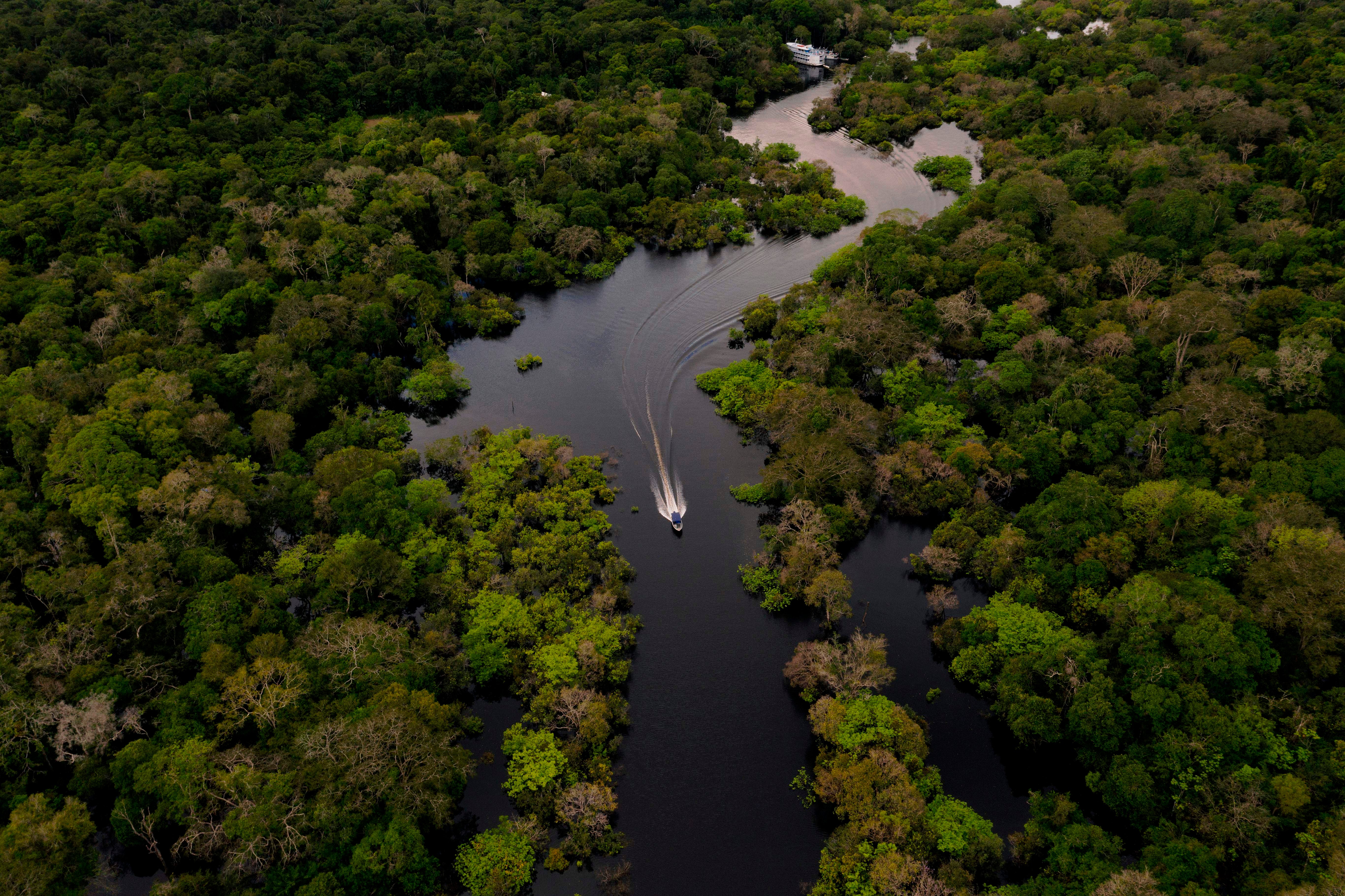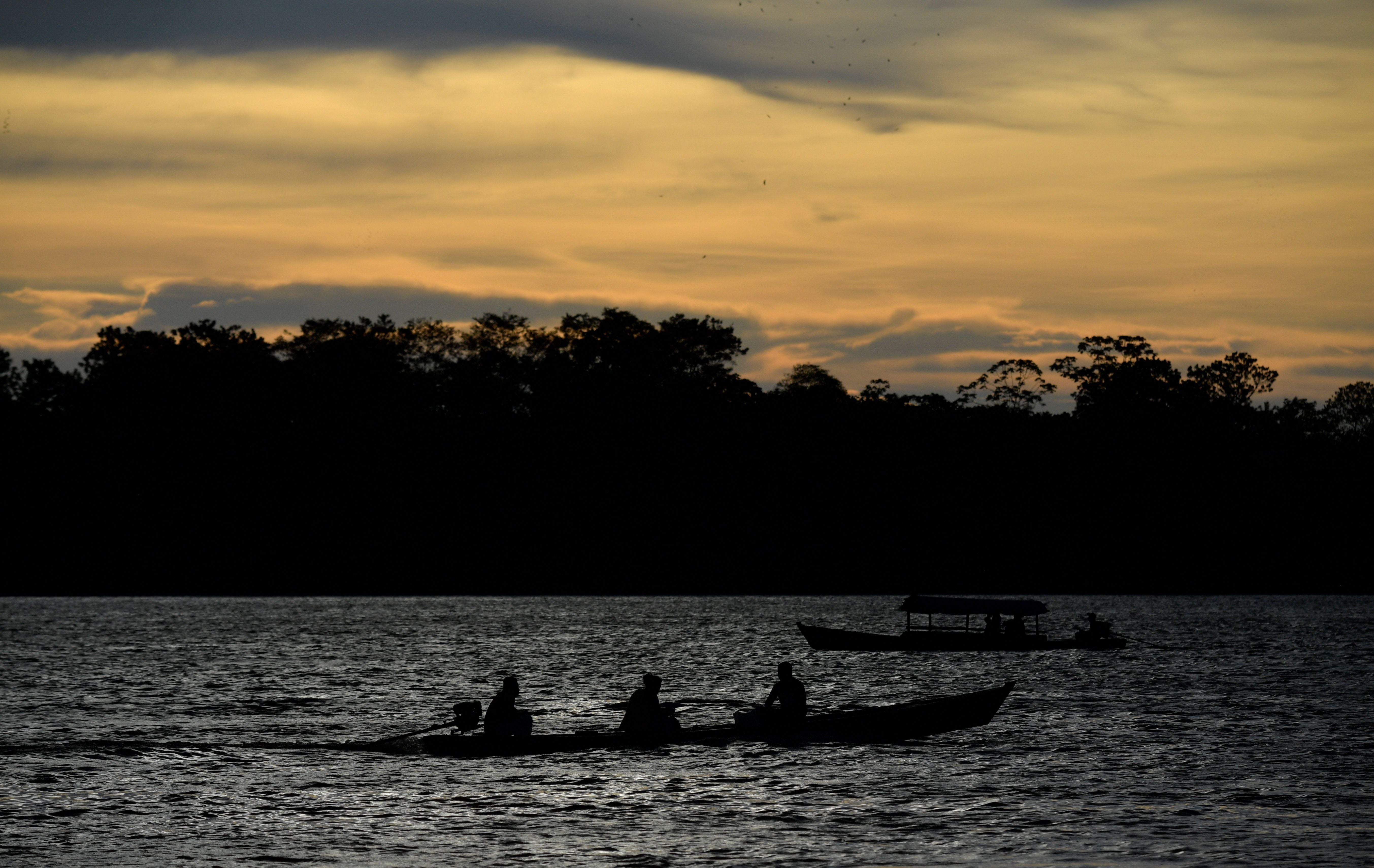From healthy eating to ayahuasca trips: do Amazonian tribes have lessons for the West?
Could we live longer, healthier lives by borrowing lifestyle habits from indigenous communities in the Amazon? Oliver Poole reports

Your support helps us to tell the story
From reproductive rights to climate change to Big Tech, The Independent is on the ground when the story is developing. Whether it's investigating the financials of Elon Musk's pro-Trump PAC or producing our latest documentary, 'The A Word', which shines a light on the American women fighting for reproductive rights, we know how important it is to parse out the facts from the messaging.
At such a critical moment in US history, we need reporters on the ground. Your donation allows us to keep sending journalists to speak to both sides of the story.
The Independent is trusted by Americans across the entire political spectrum. And unlike many other quality news outlets, we choose not to lock Americans out of our reporting and analysis with paywalls. We believe quality journalism should be available to everyone, paid for by those who can afford it.
Your support makes all the difference.Deep in the Peruvian and Brazilian Amazon there are indigenous communities who, research suggests, suffer far lower rates of the diseases that are the biggest killers in the West. Dementia and heart disease occur much less frequently – with a University of Southern California study released earlier this year finding the lowest rates of dementia in the world.
It is this supposed anomaly, and the conclusions he has drawn from it, which form part of a new book, The Wisdom Wheel, published by Dr Alberto Villoldo, an anthropologist who specialises in tribal communities around the world.
More specifically, Dr Villoldo has spent 25 years researching societies where the primary medical caretaker is a shaman – and he believes Western society has much to learn about good health from better understanding the mystic traditions these communities follow.
“As soon as the Amazonian peoples began to eat like us, live like us and to have cell phones and harried lives… they started getting sick like us and to die like we do”, he tells The Independent over Zoom from his sitting room in Chile.
The health problems that those in the West have, he argues, are due to a way of life that we have come to accept as normal, but in reality is anything but. As a result, Dr Villoldo argues that our high-sugar, fast-paced, work-oriented lifestyles are significantly damaging our health.
That is why he now sees mankind as on the brink of a great “experiment” in longevity. “It has to do with how you eat, the amount of stress in your life, how you forgive, how you love, the experience of the sacred, of belonging, of communion,” he says. “These are all really essential elements to maintain health to be part of this experiment.
“We have the opportunity to take part in this experiment in a very, very favourable time when extinction is happening all around us. When each and every one of us can take that leap if we choose to. To become a new human that lives and gets healthy and dies differently, and maybe that doesn't die for a very long time.”
Some of his ideas are not radical in themselves. Many studies from some of the world’s most reputable medical organisations have found conclusions along these lines that the Western diet is deeply damaging.
A study published in Nature magazine at the end of 2014 blamed the sugars, fats, oils and meats of the Western diet for a higher incidence of a number of diseases, not least type II diabetes and coronary heart disease. A 2017 study in Science magazine found that hunter-gatherers in Tanzania had a more diverse gut biome than those living in the industrialised world.
“Eat plants that grow around your home,” says Dr Villoldo. “Have your own home gardens and eat more greens.”
Other ideas are less conventional. Dr Villoldo writes in his book about what he sees as the invisible world and the role of spirit animals and the ayahuasca trips that open up the “window” to these worlds.
“It's very hard to expand the mind of a scientist to include the invisible world, that we're surrounded by, unless you’re a physicist, because physicists understand that 95 per cent of the universe is invisible and is called dark matter and dark energy,” he said.
“We don't have the sensory, the senses or the instruments to be able to perceive this invisible world unless you do the experiment that the shamans do which is to take the mind-expanding plants.
“That includes the ayahuasca and psilocybin mushrooms. They give you a glimpse and open up that window to that world. So you have got to be willing to do the experiment – and to do it not in your living room or in the movie theatre or in a discotheque but to do it in the Amazon.”

Central to his book is the importance of spirit animals, which represent the different processes one must pass to achieve “states of extraordinary health.” The beginning stage, he tells me, is the snake.
“The serpent teaches you to shed your skin. Shed the past – don’t be attached to those old stories. Come up with something new. Discover! Much of science today is focused on what we already know, and not the cutting edge of discovery, because you don’t get funding for the kind of science that makes a lot of mistakes.”
Dr Villoldo has found the medical community unconvinced by his findings. Once a professor at San Francisco State University, he became increasingly frustrated with the lack of understanding of indigenous cultures and the racism that he saw as embedded in the Western worldview.
What first attracted him to these traditional healers, he says, was their focus on preventing, rather than treating, illness – a priority at the time far less visible in his native America. “You don't treat disease, you've got to treat people,” he explains. “It’s so much more economical than trying to treat cancer or heart disease down the line.”
He tells us he was being sponsored by “Big Pharma” to research alternative methods of using plants for healing, and thereby helping bring in money into the university, but was not being heard for his insistence that a more immersive approach was needed if true medical benefits were to be found.
“For me to milk the sweet milk of success, I had to conform to the Western worldview that what was American was best,” he said. “What was modern was far more improved than anything that existed before. At that point I decided to give up the Western worldview.”
Faced with our present climate emergency, Dr Villoldo believes that if the West started to eat consciously and open their eyes to the ways other cultures interact with nature, there could be great benefits for mankind.
Whichever way one wants to cure these “illnesses of civilisation,” listening to the learnings of communities who have been successful custodians of the earth for centuries is one place to start, he believes.
“What I discovered when I went to the Amazon, I was going back to nature,” Dr Villoldo explained. “It was like going back to the garden. It’s going back to Eden. And in my time in the Amazon, I began to think you know, these people have not been kicked out of paradise.”


Join our commenting forum
Join thought-provoking conversations, follow other Independent readers and see their replies
Comments